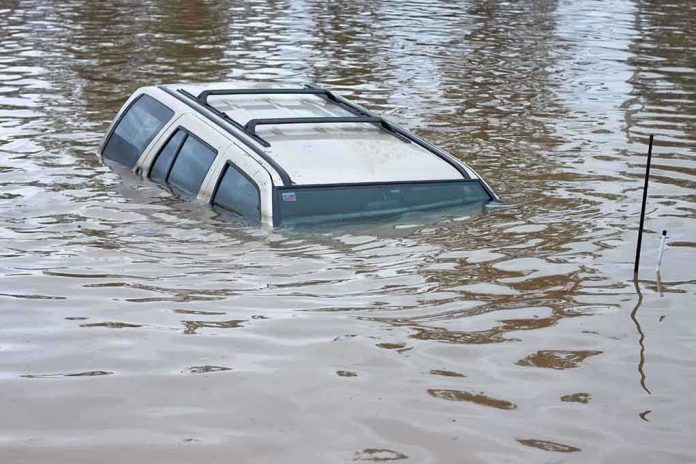
As Arizona recovers from devastating flash floods that left four dead and a community shaken, questions surge about government priorities and the forgotten needs of rural America.
Story Snapshot
- Four people lost their lives as sudden flash floods struck Globe, Arizona, triggering a state of emergency and exposing infrastructure weaknesses.
- Emergency response teams and volunteers launched large-scale rescue and cleanup operations amid ongoing searches for missing residents.
- The tragedy highlights long-standing concerns about neglected rural infrastructure and disaster preparedness after years of misplaced spending priorities.
- Calls intensify for officials to refocus resources on protecting American communities, not foreign agendas or bloated bureaucracies.
Deadly Floods in Globe, Arizona Expose Rural Infrastructure Gaps
On the night of September 26, 2025, Globe, Arizona, a small mining town in Gila County, was overwhelmed by intense flash floods. The deluge resulted in four deaths, several missing, and widespread destruction, forcing the state to declare a formal emergency. Cleanup and rescue operations began immediately, with local authorities, emergency responders, and volunteers working tirelessly to clear debris and restore basic services. For a tight-knit community of just 7,000, the scale of loss and property damage is unprecedented, fueling deep frustration about years of infrastructure neglect.
Globe’s geography—narrow canyons and steep hills—makes it especially vulnerable to flash flooding, a risk worsened by aging drainage systems and years of insufficient investment. While officials and meteorologists point to unusually heavy rainfall during the 2025 monsoon season, residents are demanding answers as to why longstanding warnings about infrastructure vulnerabilities went unaddressed. Many locals see this disaster as a direct result of government inaction, with rural communities repeatedly sidelined while resources were diverted to less critical or politically driven projects.
Community Response and the Role of Local Volunteers
As emergency teams coordinated search, rescue, and recovery, ordinary citizens stepped up. Volunteers joined first responders in debris removal, restoring infrastructure, and supporting displaced neighbors. The state of emergency declaration expedited aid and allowed for the rapid allocation of resources, but the bulk of early relief came from within the community itself. Residents of Globe exhibited remarkable solidarity, but the strain on their limited resources underscores the need for more robust, locally focused disaster preparedness—not just top-down directives from distant bureaucracies.
Cleanup operations are ongoing, with officials reporting millions in property and infrastructure losses. However, the immediate threat has passed, and focus has shifted to long-term rebuilding. State and local leaders have issued statements of condolence, pledging support, but many in the community remain skeptical after years of unfulfilled promises and budget mismanagement at higher levels of government.
Political Ramifications and the Need for Conservative Reform
This tragedy has reignited debate over national spending priorities and the role of government in safeguarding American communities. For too long, critics argue, the federal government poured billions into globalist projects, social engineering, and unnecessary bureaucracy, while rural towns like Globe were left exposed to preventable disasters. Many see this flood as a wake-up call: restoring constitutional, common-sense governance means prioritizing American infrastructure, family safety, and local resilience over wasteful agendas.
Experts and local officials are urging a serious reevaluation of emergency preparedness strategies. Hydrologists and urban planners have long warned that outdated drainage and insufficient maintenance put small towns at high risk. Sociologists highlight the need for mental health support and community resilience post-disaster, while insurance and construction industries prepare for the arduous task of rebuilding. The pressure is now squarely on policymakers to deliver real reform—not just rhetoric—so tragedies like Globe’s are not repeated elsewhere.
While the state and federal response is underway, the people of Globe serve as a reminder that America’s strength lies in its communities—and that safeguarding them requires principled leadership, fiscal responsibility, and a renewed focus on the needs of everyday citizens.
Sources:
Storms, flash flood destruction and cleanup in Globe, Arizona [azcentral.com]



